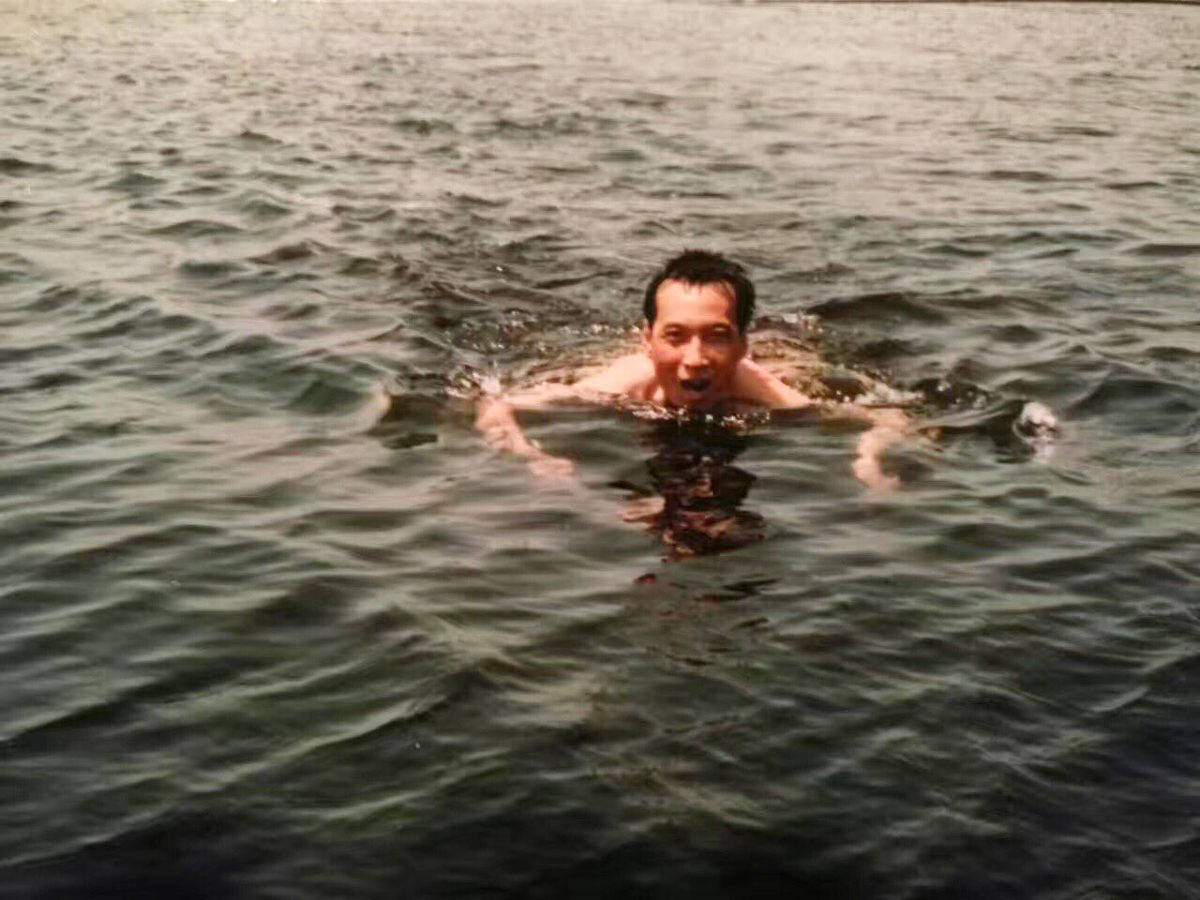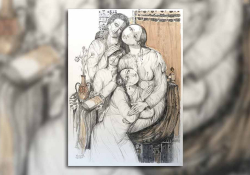A Poem from China in Memory of Liu Xiaobo

Translator’s note: This photo of Liu Xiaobo swimming surfaced on the Internet after the sea burial in Dalian, China. Those of us who were heartbroken by his sudden death felt a little bit relieved after seeing the photo—Xiaobo was a good swimmer and he’s now gone home, to the sea, free. Liu Xia’s first narrative poem was about the sea, in which a fisherman threw his only keepsake into the sea to preserve his memories of love. – Ming Di
Story of the Sea
1.
She kneels on the beach
weaving a fishing net,
her belly forward.
She rests a little to look at the sea,
a sea so boundless. No edges.
The fishing net splits her view
into small squares.
She is a fisherman’s wife.
She has always lived on this island,
never been away.
She has a red dress, worn only once
with the price tag still on it,
now at the bottom of a trunk.
She has dreamed of cities.
And city lights.
But it’s over. She will not share her dreams.
In the days her husband is gone to sea,
she talks to her son –
she’s sure it’s a boy – the one she carries
in her body.
She talks to him silently.
She is a fisherman’s wife.
2.
At dusk, a boy goes to the sea
holding his grandpa’s hand.
There are graves of various shapes
along the road, large and small,
with the clothes, quilts and bowls
that belonged to the old man’s friends –
they went to sea
but never returned.
The old man has made these graves
and mourned his fellow fishermen in tears.
He himself can no longer go to sea.
The boy walks along, jumping from one grave
to another, covered with grass
that brushes his legs like waves.
Every day the boy would go to the seaside
with his grandpa
who would sit on the beach
looking for a long time at the familiar, strange sea.
When it’s completely dark, the two of them
would leave the waves to the noise
and go home quietly like two sampans
sliding across the sea.
3.
Scattered on the beach are some boats,
old and mossy.
A little boy, bare-butt, is playing there
and suddenly finds something.
He cries out to the old man on the cliff
and runs to him with it.
The old man trembles at seeing it, a comb,
handcrafted, its teeth broken.
He had given this wooden comb
to a girl, so lovely and lively then,
and dated her in one of the now shattered boats,
an oil lamp casting light on their young faces.
Now his wife is dead.
There will be no more hair, long and black,
on their brick bed.
The old man shakes his head, speechless.
He throws the comb into the sea,
watching it drift afar.
1982
Translation from the Chinese
By Ming Di
Editorial note: Look for two additional poems by Liu Xia in the “Resistance” cover feature of WLT’s January 2018 issue.















